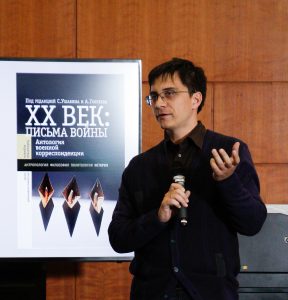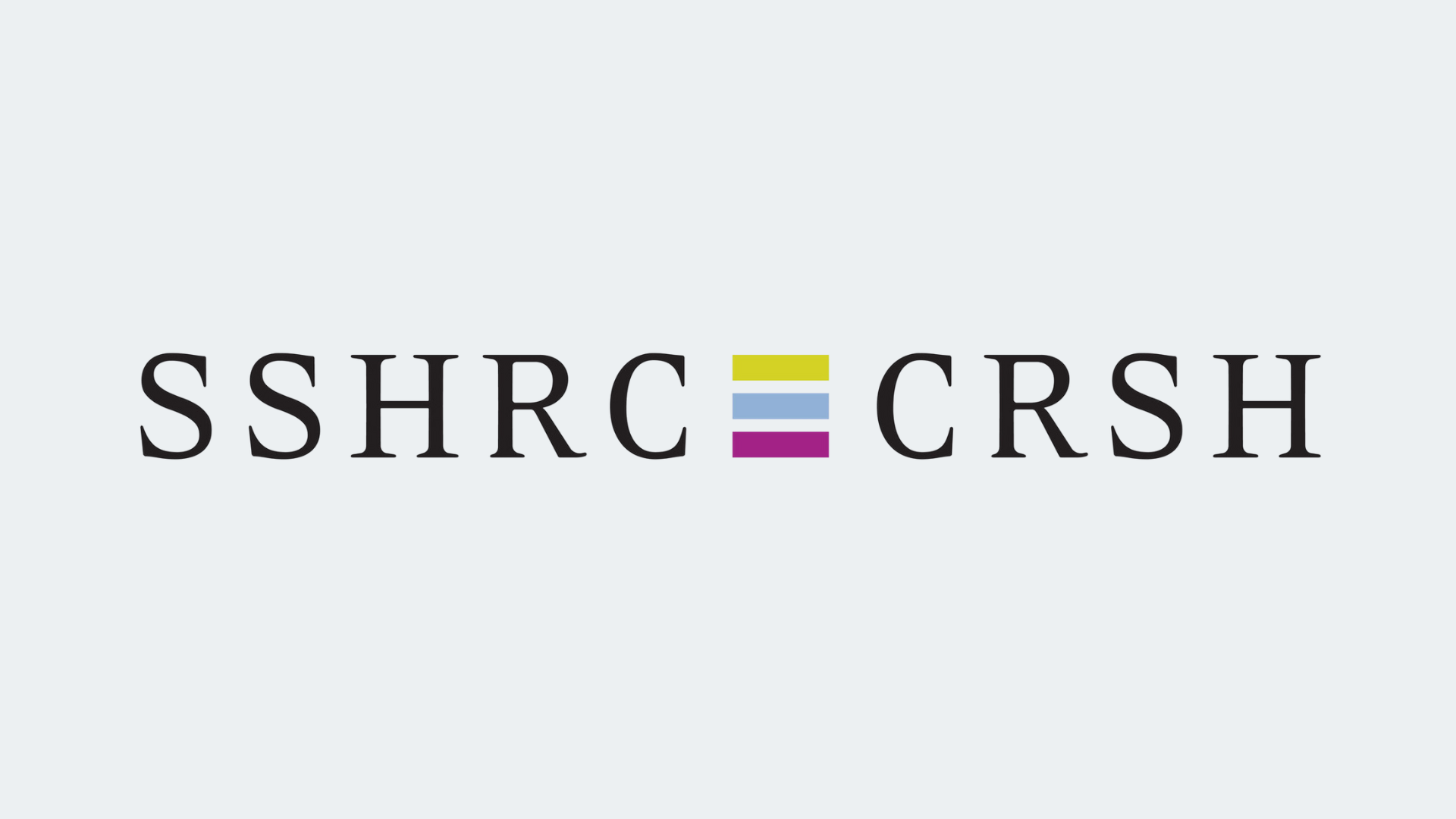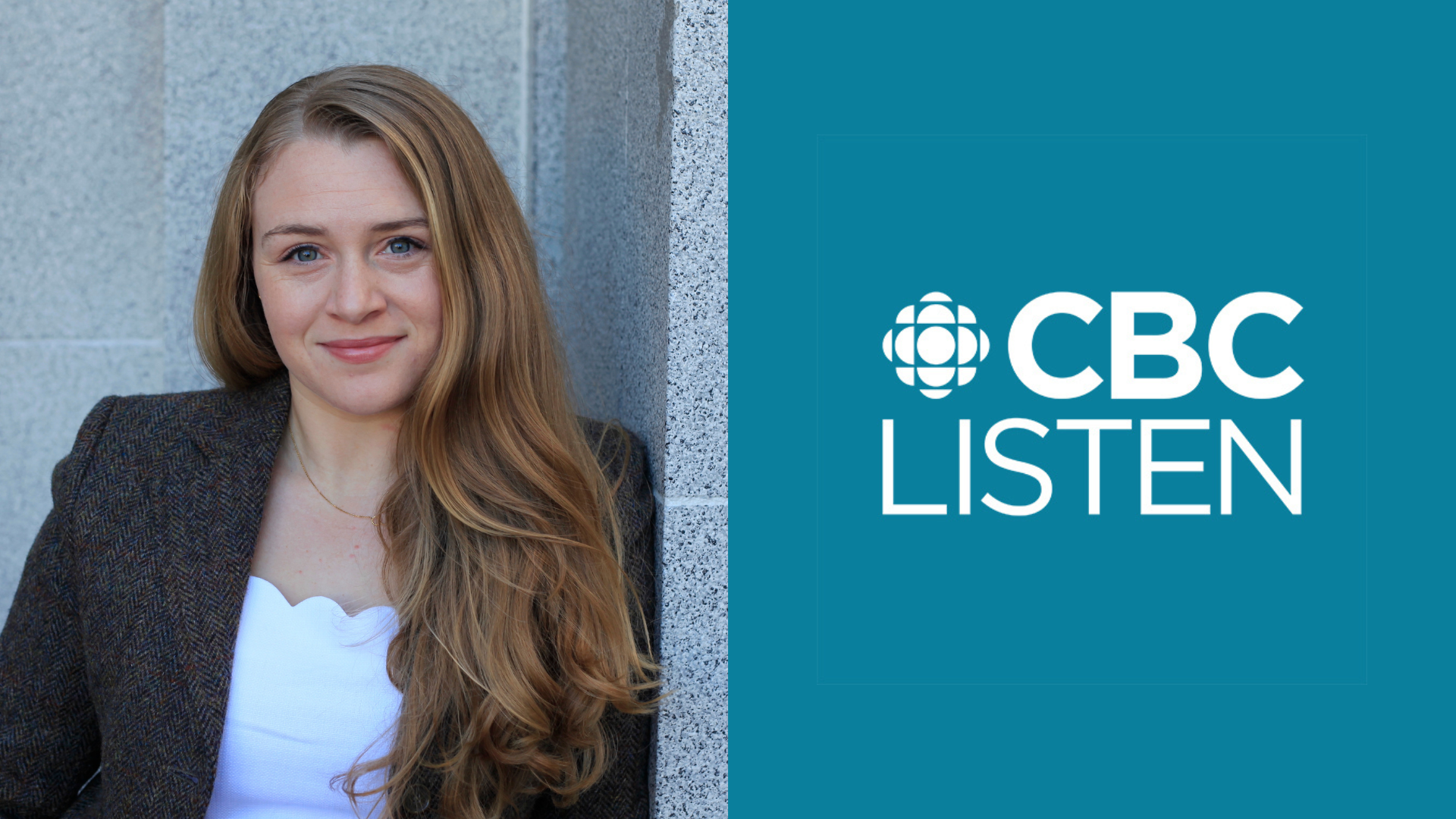

“A degree will … open new career prospects and immerse you in a vibrant academic environment. You will connect with interesting people and will learn things that you would have never learned otherwise.”
Alexey Golubev is a scholar of Russian history, with a focus on social, cultural, and transnational history. After teaching at Petrozavodsk University for several years, he attended UBC from 2011 to 2016, earning a history PhD. He now teaches at the University of Houston, and has recently become a fellow of the Radcliffe Institute for Advanced Study at Harvard University, where he will be embarking on a new project on scientific literacy among the people of the Soviet Union.
I asked Alexey a few questions about his time at UBC and his work, as well as his Radcliffe fellowship, and his upcoming book with Cornell Press, The Things of Life. Alexey discussed his experiences studying and researching Russian history, and shared some advice for other students considering undertaking a PhD at UBC.
What is your historical focus, and why do you study it? Why is it important?
I study twentieth-century Russian history as part of the global experience of modernity. The Soviet historical experience provides a unique perspective on and offers non-conventional ways of thinking about the global challenges we face these days. One of the most interesting debates in my field revolves around the question: What was the place of the USSR in the landscape of modernity? In my research, I argue that to speak of a separate Soviet modernity would mean to discard an immense diversity of social and cultural life in the USSR, and implies that the essence of Russian history lies in its government—something that often translates into the writing and teaching of Russian history as a history of its rulers.
I suggest, instead, that we need to rethink Soviet history in terms of the global challenges of the modern age, which is how we can learn from it in the age when more and more people start wondering whether capitalism (as an economic formation) and liberal democracy (as a political system) are truly “the end of history.
What has your career path/academic history looked like so far? How did you get to where you are now?
I graduated from Petrozavodsk University in North Russia with an advanced degree in History in 2006, and had a contract teaching position there for the following five years. At some point, I realized that my career prospects would be very limited if I were to stay in Petrozavodsk, so I decided to pursue an international PhD degree.
I came to UBC for the doctoral program in history in Fall 2011 and defended my dissertation in March 2016. In the last year of my doctoral program, I received a Banting Postdoctoral Fellowship at the University of Toronto and a job offer for a tenure-track position in Russian history from the University of Houston. I was able to negotiate a one-year extension with Houston in order to spend a year in Toronto – the Russian collections at the Robarts Library are fantastic. This year was immensely helpful for me: I did not have to teach, and so could concentrate on revising my dissertation into a book manuscript. In Fall 2017, I came to Houston, where I have my current position of Assistant Professor of Russian history and digital humanities.
It might sound like a very straightforward path, but it was not. First, moving from Russia to Canada with two children (2 years and 6 months) and two suitcases was something that I am not sure I would be able to repeat. Having children also considerably limits your opportunities for research and writing. During the five years of my doctoral program at UBC, I spent most of the nights after we sent kids to bed working on either my dissertation or side projects. And then in the beginning of my third year at UBC, my then four-year old son was diagnosed with leukemia (he has fully recovered since then). I estimate that roughly a third of my dissertation was written in the BC Children’s Hospital. In some ways, this experience made my dissertation stronger, as I was able to relate it to some of the themes I discuss in my research – most importantly, body and health – but, as we say in Russia, you would not wish it to happen even to your enemy (i vragu ne pozhelaesh).
My supervisor, Anne Gorsuch was tremendously helpful, and so was my committee – Bill French, Alexei Kojevnikov, and Carla Nappi. While Bill French works in a different geographic field (Mexico), he provided me with such excellent advice that since then I always recommend graduate students to take at least one committee member from outside of their geographic area, but with overlapping thematic interests. That my book is sensitive to the issues of class, gender, and visuality is, to a large extent, due to his mentoring.
So, it was a difficult road, but UBC was a good place to take it, because it is people that make a university great, and UBC has a great faculty.
Why did you choose UBC for your PhD?
UBC was one of the five universities where I applied for graduate school. I was not applying to universities in the U.S., as at that time I already had two children, and everyone I knew told me that graduate student health plans were not great for families there (prophetic advice, as it turned out).
UBC offered me a much better funding package than other schools; in addition, I had previously collaborated with Anne Gorsuch on her project on Soviet tourism, and when I got in touch with her in 2010 asking about a possibility to write a doctoral dissertation under her supervision, her response was very enthusiastic. Of all my potential supervisors, her research expertise was the closest to what I wanted to do in my doctoral research, so it was an important factor in my decision.
Your new book with Cornell Press, The Things of Life, an adaptation of your 2016 dissertation defended at UBC, will be published soon. What is this book about? Why did you choose this subject for your UBC dissertation?
The Things of Life is a social and cultural history of material objects and spaces during the late socialist era. It traces the biographies of Soviet things, examining how the material world of the late Soviet period influenced Soviet people’s gender roles, habitual choices, social trajectories, and imaginary aspirations.
Initially, when I applied for the doctoral program in history at UBC, I had a rather different topic in mind: Western cultural influences in the USSR in the 1970s and 1980s.What happened after that is what graduate school should do to you: as I took classes for my course requirements, and especially as I started reading books for my comprehensive exam, I was able to identify a gap in historiography: namely, that the debates of what made Soviet people Soviet were predominantly – if not exclusively – focused on language. That preoccupation with the uniquely Soviet forms of language translated into research that described Soviet subjectivity and selfhood in terms of differences from the Western liberal subject, representing Soviet society as a separate civilization. As a result, the current historiography of Soviet subjectivity largely fails to explain the astonishing diversity of the forms of Soviet selfhood, the ways in which people negotiated and performed themselves.
My contribution to this debate is that we should not limit our intellectual engagement only to discourse and ideology. People’s selves are also a result of material, in addition to linguistic production. Instead of seeing political structures and discursive frameworks as the only mechanisms for shaping Soviet citizens, I explore how Soviet people used objects and spaces to substantiate their individual and collective selves.
Therefore, in my book, I examine the ability of things and spaces to organize Soviet society and Soviet bodies in ways which were not reducible to ideological and discursive meanings, thus contributing to understanding the social roles of materiality. Through its focus on materiality and personhood, The Things of Life expands our understanding of what made Soviet people and society “Soviet.”
You’re now a fellow of the Radcliffe Institute for Advanced Study at Harvard University. What work will you be undertaking as part of your fellowship? Why is this work important?
I am quite fascinated with my new project! It examines the Soviet attempts to produce mass scientific literacy in the period after World War II, when tens and later hundreds of thousands of members of the Soviet intelligentsia were recruited to communicate scientific knowledge to the public through popular science lectures, publications, public experiments and debates, and TV-shows.
This mass scientific literacy campaign resulted in a diverse and autonomous network of people and ideas in the late Soviet Union that was only superficially controlled by the state, and eventually undermined the public trust in officially sanctioned knowledge.
My research provides a novel perspective on a pressing social question of why mistrust of science remains a persistent feature in modern societies. My preliminary analysis of primary sources suggests that public doubts about science in the USSR were connected with the communication of science and scientific knowledge to lay audiences. The Soviet historical experience can thus help us understand how phenomena such as anti-vaccination movements, climate change denial, and conspiracy theories emerge as by-products of scientific citizenship. They are lay versions of modern inquiry into the nature of things, and legitimate concerns about hegemonic narratives, rather than just obscurantism and evidence of archaic forms of thinking.
In this situation of a global pandemic when, despite all scientific evidence, there are so many conspiracy theories related to COVID-19, my research has acquired a much greater importance, so I look forward to developing it into a new book.
What advice would you give to others considering a history PhD at UBC?
UBC is a top world and Canadian university with excellent faculty, and in my case getting a PhD degree from UBC was a career choice that paid off. However, as with any career, you have to take certain proactive steps to make it all happen.
If you consider a history PhD at UBC, the general advice is the same as with any other university. Your supervisor will be the most important person in your career, so make sure to gather as much intelligence as you can. The easiest way is to get in touch with former or current graduate students and ask them. Do not shy away from writing such letters. Remember that if you end up with a reluctant or disinterested supervisor, it might ruin your entire academic career- make “It never hurts to ask” your slogan.
Finding an interesting topic for your dissertation research is also important, but keep in mind that you can always change it as you work through your coursework and comprehensive exam.
Once you’ve started your PhD program, make sure to reach out to faculty members as much as you can. I am a faculty member myself now, so this is something that I was able to observe from both sides: professors might be overburdened, but if you reach out to them and ask for advice, help, or a cup of coffee, they will gladly share it with you. You will not be able to make it through graduate school without mentors, and mentors will not materialize from thin air. The more people mentor you, the better your chances for a successful academic career. I am still using the advice on CV formatting learned from Courtney Booker and on rhetorical figures and devices in job talks from Dave Morton.
It is necessary to have a clear understanding that a degree will not automatically lead to a faculty position- this is true for PhD degrees from any university. But it will open new career prospects and immerse you in a vibrant academic environment. You will connect with interesting people and will learn things that you would have never learned otherwise.
For more information:
Find Alexey Golubev’s upcoming book, The Things of Life, here.
Find more about Alexey Golubev’s work here.


